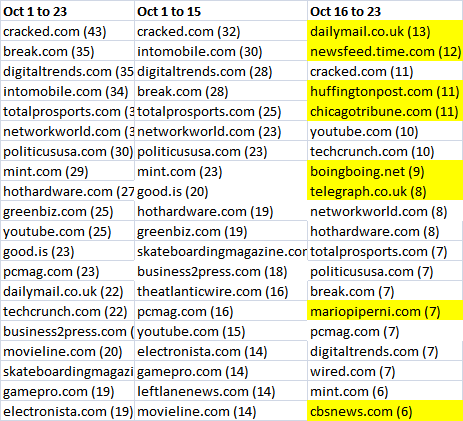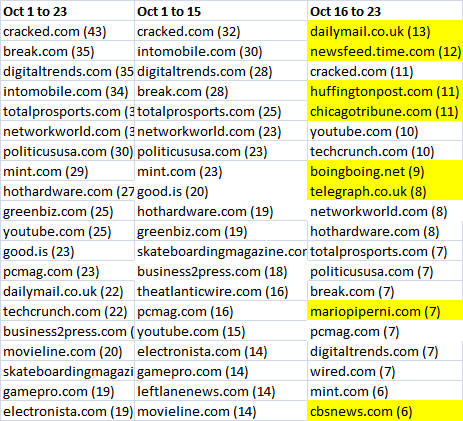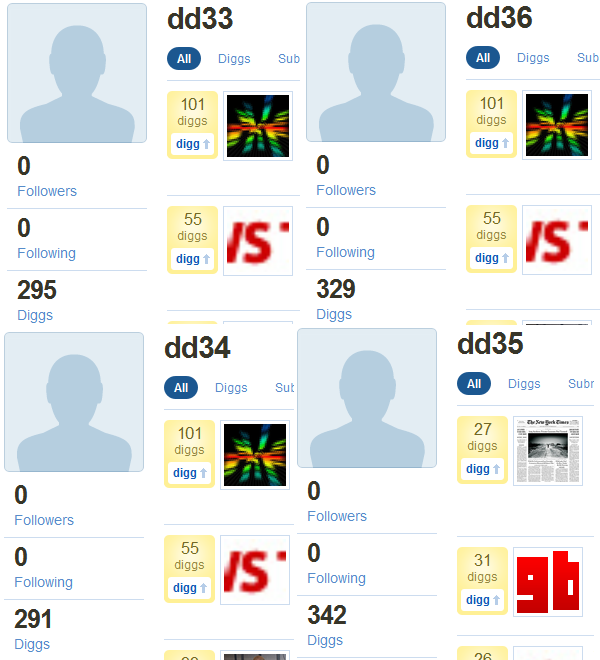Stranger things have happened in the social media world.
Well, maybe not.
Digg, stuck in on the losing side of an all-or-nothing bet with their site when they changed to V4 in the beginning of September allegedly attempted to “stack the deck” on October 15th with an algorithm change designed to highlight top sites such as DailyMail and Time. According to the allegations based upon research performed by Digg user LtGenPanda, Digg (or someone wanting to help Digg) created dozens of accounts to get major mainstream publications back on the front page of their site.
The post by LtGenPanda is interesting but quite long. Here are the highlights:
- Prior to the algorithm change, mainstream media sites were not well represented on the Top News section of Digg.com.
- After the algorithm change, sites including DailyMail, Time, and HuffingtonPost started hitting the Top News section regularly.
- 159 accounts with names such as Diggerz17, Diggerz18, and Diggerz19 were used to inflate the Digg counts on these and other mainstream sites, often accounting for over 90% of the upcoming Diggs to these stories.
There have been many stories documenting the “decline of Digg” as a traffic source and as a relevant social media site. This news comes on the heels of word that Digg will be cutting its staff by 37%, changing their business model, and going into “startup mode”.
It actually makes sense for Digg to make a play like this. The top sites that were held in high regard as the key to Digg’s future success haven’t really worked out like Digg intended and the jump to mainstream relevancy hasn’t happened. The real question one would ask (if Digg or someone associated with Digg created these accounts to spam mainstream sites to the front page) is why would they leave such an easy trail to follow? It wouldn’t be hard to build 159 accounts with different names and Digging habits? Why be so obvious?
Only Digg (or someone close to Digg) knows the answer to that.




if thats true, then I dont feel sorry for them at all, and it looks like 3 ex powers users are building their own version of digg at http://DiigMe.com.
digg is freaking dead. V4 did away with everything that made digg great, and instead just highlights big corporate websites that people already see and know. It used to give small time blogs a voice because they had a good post. now it’s all time, cnn, and espn like sites.
Digg v4 is one of the biggest fails in Internet History. The website imploded on itself and all the dedicated users left through frustration and found a new amazing home over to Reddit.